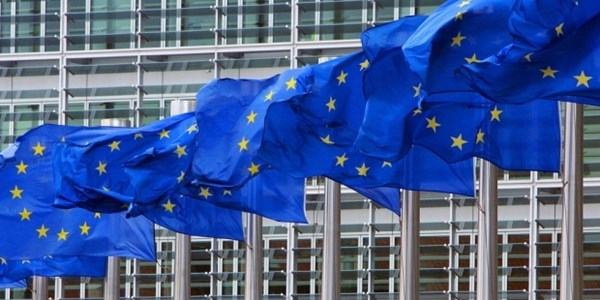EU wants to be part of U.S. talks with Russia on security guarantees
Any discussions on European security should take place in coordination and participation with the EU. Therefore, the European Union wants to take part in negotiations between the United States and Russia on the de-escalation of tensions on the Russian-Ukrainian border, said EU High Representative for Foreign Affairs and Security Policy Josep Borrell in an interview with the German newspaper of Die Welt.
"We do not want and cannot afford to be outside spectators, with the decisions made behind our backs," he stressed.
According to Borrell, "if in January Moscow wants to start discussing the security architecture in Europe and talk about security guarantees, then these are not issues that concern only America and Russia."
"The EU should be present at these negotiations. Such negotiations will only make sense if they are held in close coordination and with the participation of the EU," Borrell emphasized.
According to Borrell, Russia would like to have a situation where the two sides share spheres of influence without taking into account the EU. "We will never agree with this," he assured.
Borrell also criticized the "completely unacceptable conditions, first of all, regarding Ukraine", put forward by Russia, along with its calls for security guarantees and the non-expansion of NATO to the east. The right of any state to independently decide whether or not to join any alliances cannot be the subject of discussion, the EU representative noted.
US State Department spokesman Ned Price guaranteed Europeans "transparency and solidarity" during the US-Russia talks scheduled for January 10 in Geneva but did not promise to involve the EU in them. The meeting will be held in the bilateral format of the strategic dialogue on security.
Earlier, the Russian Foreign Ministry said that Russia's negotiations with the United States on "security guarantees" or non-expansion of the NATO bloc will be held a day before the summit of the Kremlin and the North Atlantic Alliance.
Amid buildup of Russian troops and weapons near Ukrainian borders, Vladimir Putin put forward an ultimatum demanding that NATO do not to accept any new members from eastern Europe. Putin’s spokesperson, Dmitry Peskov, called the expansion of NATO to the countries of the former USSR "a matter of life and death" for Russia.
On December 15, the Russian Ministry of Foreign Affairs sent to Washington proposed agreements with NATO and an agreement with the United States on so-called security guarantees, which stipulate that NATO must stop its expansion and Ukraine will never be accepted into the Alliance.
At the same time, Putin refused to give guarantees of Russia's non-aggression against Ukraine. The United States expressed its readiness for dialogue with Russia but ruled out the possibility that the Kremlin could decide who to accept or not to accept into NATO.
